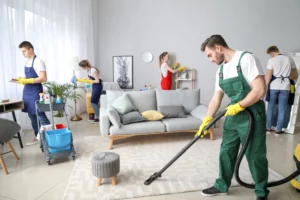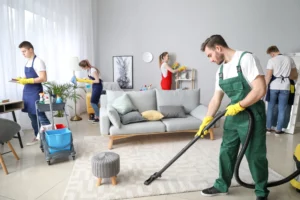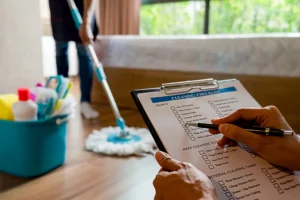Renting Dilemma: Unraveling Pest Control Responsibility
Renting a property comes with its share of responsibilities, and one often debated topic is pest control. Who truly bears the responsibility for pest control when renting? This question can be a source of confusion and disputes between landlords and tenants, but understanding the dynamics is crucial for maintaining a healthy living environment. Let’s delve into the nuances and shed light on the responsibilities associated with pest control in rental properties.
Understanding Lease Agreements
Lease agreements serve as the backbone of any rental arrangement. Typically, these agreements outline the terms and conditions that both landlords and tenants must adhere to during the lease period. But what do they say about pest control? Examining lease agreements is the first step in unraveling the pest control conundrum.
Landlord’s Legal Responsibilities
Landlords carry a legal responsibility to ensure their properties are habitable. This includes maintaining a pest-free environment. While laws may vary, most jurisdictions mandate landlords to address pest infestations promptly. What legal obligations do landlords have when it comes to pest control? Understanding these obligations is crucial for both landlords and tenants.
Tenant’s Role in Pest Control
While landlords shoulder the legal responsibility, tenants also play a significant role in pest control. Simple measures such as proper sanitation and waste disposal can go a long way in preventing pest issues. How can tenants contribute to pest control efforts? Let’s explore the actions tenants can take to minimize the risk of infestations.
Common Pests in Rental Properties
Understanding the enemy is the first step in combating it. From rodents to insects, rental properties can face various pest challenges. What are the common pests that tenants and landlords should be aware of? Identifying these pests is essential for early detection and effective pest management.
Early Detection and Reporting
Swift action is crucial when it comes to pest control. Tenants should promptly report any signs of infestations to landlords to prevent the problem from escalating. How can early detection and reporting mitigate pest issues? Let’s discuss the importance of communication in addressing pest concerns.
Landlord’s Obligations for Infestations
While tenants can take preventive measures, severe infestations often require professional intervention. When are landlords obligated to address pest infestations immediately? Exploring scenarios where landlords must take swift action is essential for both parties involved.
Tenant’s DIY Pest Control
Tenants need not wait for landlords to address minor pest issues. What are some DIY pest control measures tenants can undertake? Providing practical tips empowers tenants to take proactive steps in maintaining a pest-free living space.
Responsibility Clarity in Different Regions
Pest control responsibility isn’t a one-size-fits-all concept. Laws and norms regarding pest control may vary from one region to another. How do different regions approach pest control responsibilities in rentals? Understanding these variations is vital for both landlords and tenants.
Seeking Professional Pest Control Services
In some cases, professional intervention is the most effective solution. When should both tenants and landlords consider hiring professional pest control services? Exploring the scenarios where expert help is warranted ensures a comprehensive approach to pest management.
In the renting dilemma of pest control responsibility, collaboration between landlords and tenants is key. Balancing legal obligations with proactive measures can create a harmonious living environment. By understanding each party’s role and seeking common ground, the renting experience can be pest-free and enjoyable. Buddy Cleaning Dubai stands ready to assist both landlords and tenants in maintaining a clean and pest-free living space.




